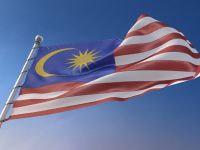French President Jacques Chirac on Monday refuted any theory linking the September 11 terrorist attacks in the United States with a "culture clash" between western and Islamic worlds.
Chirac, speaking alongside his Nigerian counterpart Olusegun Obasanjo at the opening of the 31st general conference of UNESCO, said that adopting such a theory would be like "falling into a terrorist-set trap which pits culture against culture, religion against religion."
"Without falling pray to such theorising, we all need to ask ourselves, each of us individually, have we stayed faithful to our own cultures and the values which underlie them?" he added.
"Is the West responsible for imposing a dominant culture, one essentially materialistic and aggressive, as lived by the greater part of humanity, many of whom subscribe to it without having access to it?"
Winding up his address to the 188 member states of the United Nations Educational, Scientific and Cultural Organisation, Chirac posed one more question: "Up to what point can a civilisation go to export its values?"
Obasanjo also took time out to evoke the terrorist attacks on New York and Washington which have claimed about 5,500 lives.
"The horrible events which happened in the United States on September 11 have struck the world senseless and scaled back so many international activities," he said.
"If UN organisations like UNESCO want to fulfil everybody's hopes there is an urgent need to have another look at and reinforce worldwide cooperation ."
Obesanjo went on to call Africa the most fragile region in the world and exhorted all countries to get involved in the work of restructuring international relations.
Over the weekend an anti-US rally held by Muslims in the northern Nigerian city of Kano sparked heavy rioting during which police say 18 people were killed and some 116 were injured.
Delegates at the conference observed a minute's silence at the start of the meeting in honour of those who died in the attacks in the United States.
UNESCO's Director General, Japan's Koichiro Matsuura, pointed out it was the first time that a general political meeting between ministers of the world had been able to take place since September 11.
"The fact that this reunion has even been able to happen is a clear sign of our collective willingness to put behind us these attempts at destabalisation and international terrorist intimidation," he said.
The conference which will continue until November 3, with the participation of 3,000 delegates, is expected among other things to tackle issues of cultural diversity, bioethics and underwater heritage.
The UNESCO members are expected to adopt a Declaration on Cultural Diversity, intended to be a "benchmark in the formulation of national cultural policies", a press release said.
Some 50 science ministers will take part in a debate on bioethics, and the conference will "consider developing an international instrument on genetic data aiming to secure confidentiality and avert the danger of discrimination based on the genetic make-up of groups or individuals," it said.
In addition the conference will debate a draft convention on the protection of underwater heritage, aimed at banning its commercial exploitation, and seek to define "acts constituting a crime against the common heritage of humanity" -- Paris, (AFP)
© 2001 Al Bawaba (www.albawaba.com)







